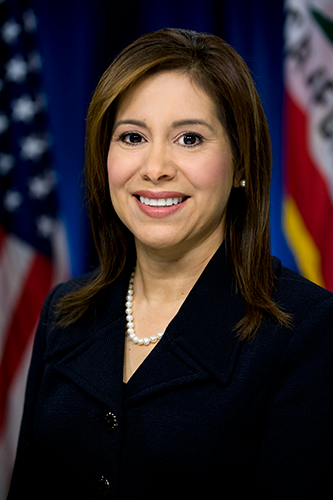Nurse Practitioners, Physician Assistants Able to Sign Medical Orders for Life-Sustaining Treatment Preferences Starting January 2016
 “In the last moments, patients and families should not be burdened with the stress of care decisions, but instead spend time together with their loved ones.”
“In the last moments, patients and families should not be burdened with the stress of care decisions, but instead spend time together with their loved ones.” – Assm. Nora Campos
Today Gov. Jerry Brown signed
AB 637, authorizing nurse practitioners and physician assistants, under the direction of a physician and within their scope of practice, to sign Physician Orders for Life-Sustaining Treatment (POLST) forms and make them actionable medical orders. The bill, authored by Assemblymember Nora Campos (D-San Jose), goes into effect on Jan. 1, 2016.
The
POLST form, introduced in California through legislation (
AB 3000) in 2008, clearly indicates what kinds of medical treatment patients do or do not want toward the end of their lives. Printed on bright pink paper and signed by both a doctor and patient, POLST helps give seriously-ill patients more control over the medical treatment they receive. The form works even if the patient loses the ability to communicate what he or she wants.
“Increasing access to these vital forms will help seriously-ill patients and their loved ones by ensuring the patients receive the care they want and encourage more discussion of end-of-life treatment options and eliminate delays in validating the patient’s desires,” said Campos. “In the last moments, patients and families should not be burdened with the stress of care decisions, but instead spend time together with their loved ones.”
Under current law, a POLST form is not valid until it is signed by the patient or their decision-maker and a physician. In situations where access to a physician is limited, it is not uncommon to have several days pass between the time a patient or decision-maker completes a POLST form and the physician reviews it with the patient or decision-maker, and signs it. During such a delay, patients may receive unwanted care or treatment because their POLST is not yet valid.
“Hundreds of thousands of seriously-ill Californians have used the POLST to ensure their healthcare preferences are honored,” said Judy Thomas, JD, CEO of the
Coalition for Compassionate Care of California, which leads the POLST program in California and is a co-sponsor of AB 637. “Allowing nurse practitioners and physician assistants to sign POLST forms will ensure the forms are enacted in a timely manner, and patients’ end-of-life treatment preferences are honored.”
After collaborating with palliative care specialists and geriatricians, the
California Medical Association (CMA) co-sponsored this bill citing the importance of POLST as a tool for honoring end-of-life care preferences and that the bill could result in increased availability of POLST orders.
Sixteen other states allow nurse practitioners and physician assistants to sign POLST forms, and no problems have been reported.
Organizations in support of AB 637 include: AARP, Association of Northern California Oncologists, Blue Shield of California, California Assisted Living Association, California Association for Health Services at Home, California Association for Nurse Practitioners, California Chapter of the American College of Emergency Physicians, California Long-Term Care Ombudsman Association, California Medical Association, Contra Costa County Advisory Council on Aging, Contra Costa County Board of Supervisors, LeadingAge California, Medical Board of California, Medical Oncology Association of Southern California, Inc., and the Physician Assistant Board.
###
The Coalition for Compassionate Care is a statewide collaborative of healthcare providers, consumers, and government agencies working to improve care for seriously-ill Californians, and is the lead agency for POLST in California. More information about POLST in California can be found at
http://capolst.org.